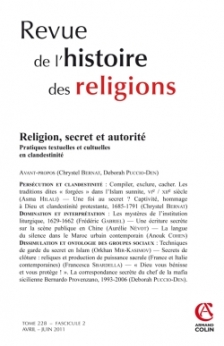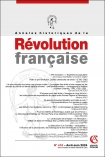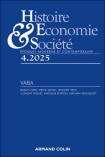
Revue de l'histoire des religions (2/2011)
Pour acheter ce numéro, contactez-nous
Recevez les numéros de l'année en cours et accédez à l'intégralité des articles en ligne.
Quatre mois après son lancement en août 2006, l’hebdomadaire arabophone Nichane est interdit par décision du Premier ministre à la suite d’un dossier – en traduction française – intitulé : « Blagues : comment les Marocains rient de la religion, du sexe et de la politique ». Un thème qui avait déjà fait l’objet d’un article en français n’ayant entraîné aucune sanction. Est-ce alors le fait d’avoir rapporté ces blagues en arabe qui soulève la polémique ? « L’affaire Nichane » interroge le statut de la langue arabe et de la langue française en milieu urbain marocain par rapport à la religion et à la politique. Est-ce à dire que la langue rend ces sujets tabous ? La langue arabe impose-t-elle le silence ? Nous interrogerons les liens entre les notions de silence et de secret.
Four months after its first publication in August 2006, the Arabic weekly newspaper Nichane was banned by a decision of the Prime Minister following a report called (in translation) : “Jokes : How Moroccans Laugh at Religion, Sex and Politics”. This subject had already been the object of an article in French that had incurred no penalty. Was it thus the fact of having reported these jokes in Arabic that was at the heart of the debate ? The “Nichane affair” raises questions about the statuses of the Arabic and French languages in relation to religion and politics in urban Morocco. Does this mean that it is the language that renders these subjects taboo ? Does Arabic impose silence ? This paper examines the how the notions of silence and secrecy are connected.

